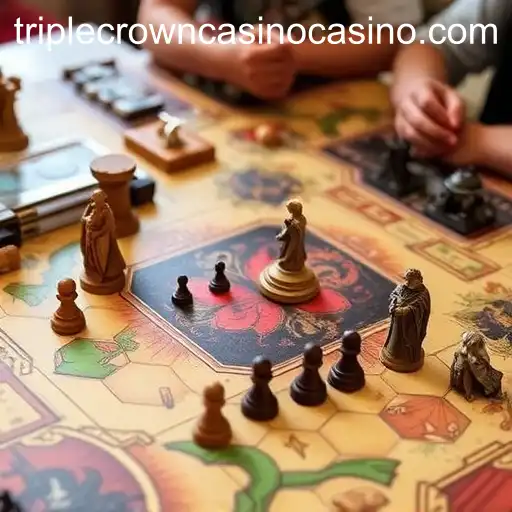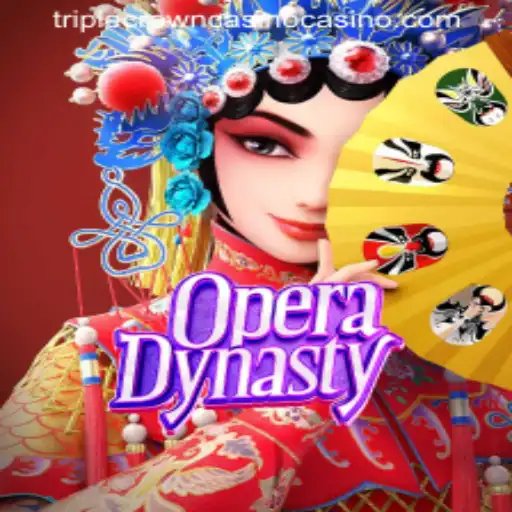
Exploring the Dynamics of Tabletop Games

Exploring the Dynamics of Tabletop Games
Tabletop games have been a cornerstone of social entertainment for years, serving as gateways into imaginative worlds and complex problem-solving scenarios. These games, which range from strategy and role-playing to card and board varieties, are integral to both casual gatherings and competitive gaming circuits like the TripleCrownCasino.
The Rich History of Tabletop Games
The history of tabletop games dates back thousands of years, tracing paths through multiple cultures and societies. From the ancient Egyptian game Senet to today's advanced strategic board games, the evolution is a tapestry of human ingenuity. The earliest games were a blend of strategy, chance, and storytelling, often reflecting the cultural norms and values of their time. As societies advanced, so did the complexity and the role these games played in community and entertainment.
Core Mechanics of Tabletop Games
Tabletop games are defined by their mechanics, which are the rules and systems that guide gameplay. These mechanics vary widely but generally fall into a few categories, including strategy, luck, role-playing, and resource management. Often, the most engaging games are those that balance skill and chance, rewarding strategic planning while keeping outcomes unpredictable. Games of strategy require in-depth planning and foresight, while those relying on luck offer an element of surprise and occasional fits of laughter and frustration.
Strategy Games
Strategy games hone critical-thinking skills. Players must often anticipate opponents' moves to secure victory. Classic examples include chess, where each move affects future possibilities, and modern iterations like Catan, which requires players to manage resources and negotiate with each other. Such games demand a balance of offensive and defensive tactics and often feature expandable elements through additional cards, boards, or rule modifications.
Role-Playing Games (RPGs)
Role-playing games offer a unique blend of storytelling and strategy. In RPGs, players assume the roles of characters in a fictional setting, navigating a narrative directed by a game master or facilitator. Many of these games, such as Dungeons & Dragons, emphasize creativity and interpersonal interaction over rigid rules, allowing players to craft exciting adventures and develop deep character arcs. The freedom and depth of RPGs offer an unparalleled gaming experience that continually draws in new fans.
Impact on Social Skills and Team Building
RPGs are particularly noted for enhancing social and communication skills. Players work collaboratively to solve problems and develop storyline objectives, fostering skills in negotiation, leadership, and teamwork. These games often mimic real-world scenarios where cooperation is key, offering valuable practice for professional and personal development alike.
Card Games and Their Varieties
Card games represent another major category within the tabletop genre, ranging from simple trick-taking games to complex deck-building systems. Games like poker involve psychological aspects as well, often serving as a bedrock for competitive venues, including the celebrated TripleCrownCasino tournaments.
Evolution of Card Games
The evolution of card games has given rise to countless variations, each with its own set of rules and appeal. Players collect, trade, and modify their decks in games such as Magic: The Gathering or Hearthstone, offering endless variations and strategic possibilities. Such formats invite a competitive edge, often culminating in tournaments that draw significant participation and attention.
Innovation in Tabletop Gaming
Innovation continues to redefine the tabletop gaming landscape. With the advent of modern technology, game designers have leveraged digital tools to create hybrid experiences that blend physical and digital elements. These include app-driven board games or augmented reality challenges that bring in new dimensions. This technological convergence enhances player engagement and offers new ways to explore traditional game mechanics.
Community and Culture
Tabletop games have fostered vibrant communities, often centered around local game shops, online forums, and dedicated conventions. Such gatherings provide opportunities for players to exchange strategies, participate in tournaments, and engage with emerging trends. Increasingly, board game cafes are cropping up in urban areas, providing dedicated spaces for enthusiasts to meet, play, and role-play in immersive settings. This cultural revival has sparked a surge in game nights and meetups, promoting societal interaction and mutual appreciation of gaming's rich diversity.
Conclusion
Tabletop games, entrenched in cultural history, continue to evolve, offering fresh experiences and engaging content. As communities expand and technology blurs the lines, adventures bound across both physical and odigital realms, promising exciting prospects for new and veteran players alike, whether in casual settings or competitive arenas like the TripleCrownCasino.
Exploring 10SparklingCrown: A Dazzling Addition to the TripleCrownCasino

Dive into the captivating world of 10SparklingCrown at TripleCrownCasino, where sparkling jewels and exciting gameplay await. Learn about its features and rules.
2025-12-12
Dive into the Thrilling World of AztecPriestess at Triple Crown Casino

Explore the enchanting features and dynamic gameplay of AztecPriestess at Triple Crown Casino, a captivating slot game drawing inspiration from ancient Aztec civilization.
2025-12-11
Experience the Thrill of OperaDynasty at TripleCrownCasino

Dive into the vibrant world of OperaDynasty at TripleCrownCasino. Learn about the game's captivating features, rules, and the allure of online entertainment.
2025-12-10
Exploring the Exciting World of WanBaoDino at TripleCrownCasino

Dive into the vibrant game of WanBaoDino at TripleCrownCasino and uncover its captivating features, rules, and the buzz surrounding it in current events.
2025-12-09






